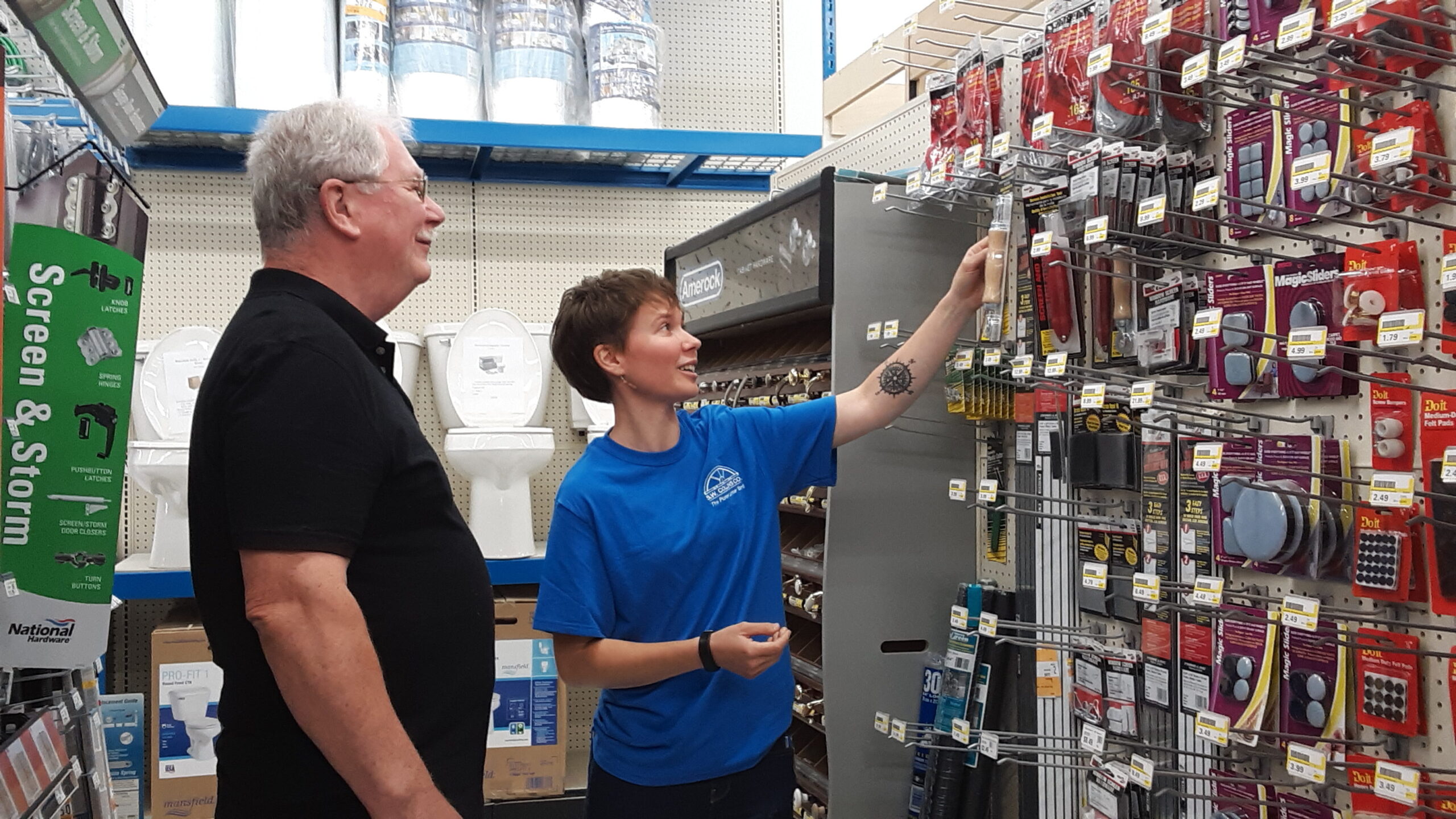
PRESQUE ISLE, Maine — Do-it-yourself projects have become increasingly popular with homeowners who enjoy rolling up their sleeves and getting to work refurbishing or even creating additions to their homes. But how can people know for sure what projects are safe enough to start on their own and which ones they’d be better off handing over to professionals?
“Sometimes it depends on what people are most comfortable doing,” said Randy Hitchcock, Presque Isle store manager for S.W. Collins Company, which specializes in home improvement and design services.
He noted that many folks can usually take on low-scale projects such as painting, plastering, replacing light bulbs and fixtures, installing new laminate flooring and adding extra insulation to windows and doors for winter weather protection without much hassle or concern, especially if they consider themselves handy with tools.
“Winter weatherization is something that folks can easily do themselves by installing spray foam insulation on windows and doors, which helps prevent drafts,” Hitchcock said.
On Thursday, Aug. 30, David Czosnek of Presque Isle stopped by S.W. Collins to purchase tools for window insulation. Czosnek said that he typically replaces screens and windows at his home and at the rental properties he owns every spring and fall to adjust them to different weather settings.
“I come here often because when you own properties there’s always something to fix,” Czosnek said.
Whether people can take on DIY projects often depends on the type of improvements that they want to make to their home, according to Hitchcock. If someone wants to simply renovate or decorate an existing room, then they could purchase inexpensive products and tools for their own use.
But if a project has more ambitious goals, such as knocking down walls, installing a new bathroom sink or renovating a kitchen, Hitchcock recommends that people hire professionals who can provide greater expertise and better results. He also advises people against taking on home improvements that involve complex electrical repairs, plumbing issues or major demolition, as trying to treat those problems without the right guidance can often make them worse.
“A contractor can tell you what the full project entails and ensure that everything is done correctly and according to local building codes,” Hitchcock said.
Whenever folks do decide that a project is worth taking on themselves, he likes to remind them not to rely too much on how-to videos and online resources.
“There are a lot of videos on YouTube that can show you the basic steps and sometimes those videos can be helpful,” Hitchcock said. “But it’s still important to read the instruction manuals for any tools you use and seek out someone for help if you need it.”







